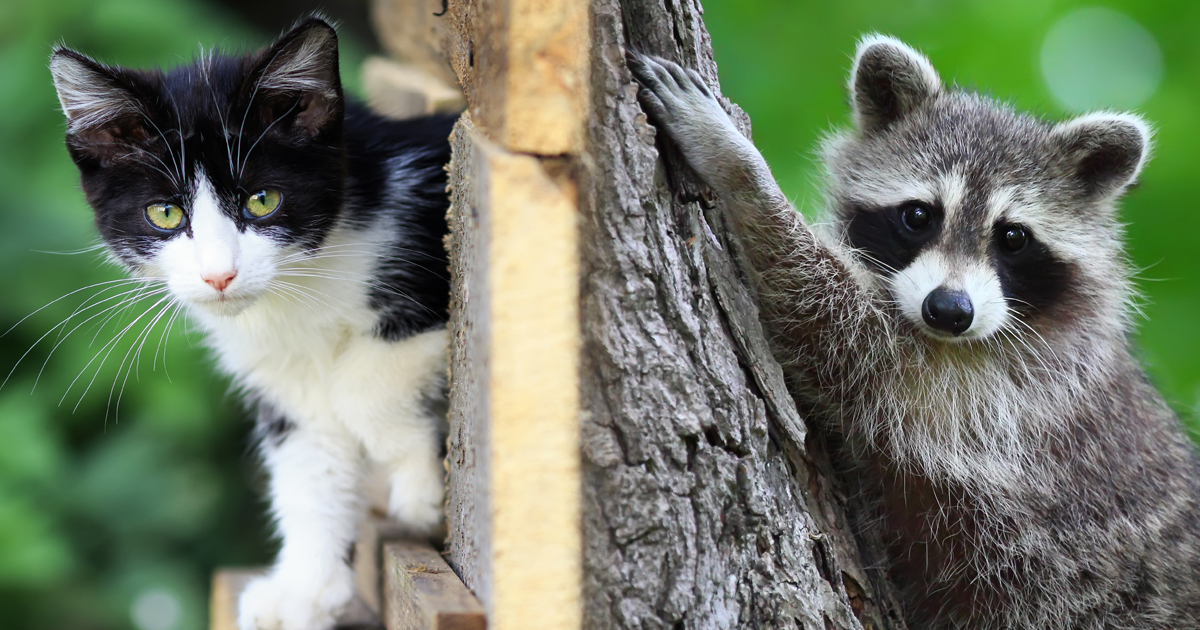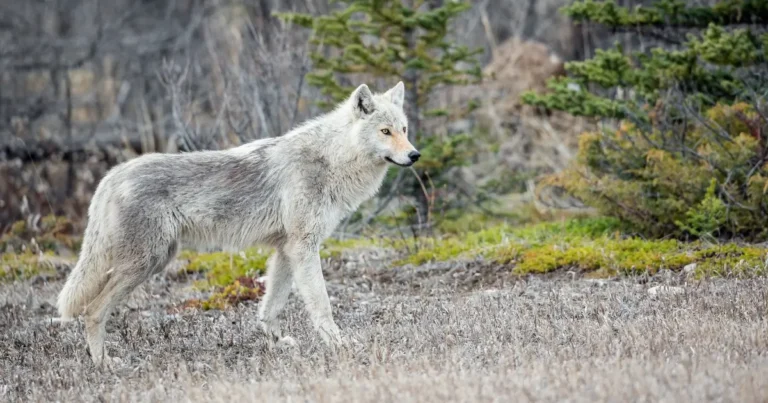
Gangs of raccoons are roving neighbourhoods in British Columbia, looking to prey upon cats… if you buy into the media hype.
More likely, raccoons (who are mesopredators), are interacting with outdoor cats for a variety of reasons, including territorial conflict, protection of their young, and quite possibly hunger in some cases. In many instances it’s also possible that cats (carnivores who are unnatural predators in all Canadian ecosystems) are beginning the altercations for the exact same reasons.
While the debate can rage to which street gang the raccoons in question belong, there are a lot of ways we as residents and responsible pet owners can prevent and curb conflict in our communities. Here’s three easy ones:
- Keep cats indoors, especially at night. Outdoor cats can be responsible for killing an exceptional number of native wildlife, are at risk of vehicular collisions, disease, fights or reproduction with other cats, and being injured or killed by native wildlife. The easiest solution to this is to keep cats indoors and away from these many risks. Outdoor cats can be taught to enjoy the indoors, and all cats can have all their senses and needs met with a bit of work.
- Check out attractants. In many cases of investigated conflict by The Fur-Bearers anecdotally and in studies on conflict, attractants such as food or shelter were the root cause. Remember that pet food, overfilled and spilled bird feeders, and even a dirty grill can draw all types of wildlife to your property and increase the risk of negative encounters.
- Look into catios! From a small tunnel snaking through the backyard, to a removable installation on a window that’s multi-levelled, catios are an amazing way to let cats (or other small pets) enjoy the outdoors while remaining in a safe environment. Check out this blog about a catio built by one of our supporters.
It’s sad and upsetting when a beloved pet is injured or killed. It’s up to us as responsible pet owners to take reasonable precautions, not just for our furry family members, but for the wildlife with whom we share our communities.
pleaseclick hereand help us save lives today.

